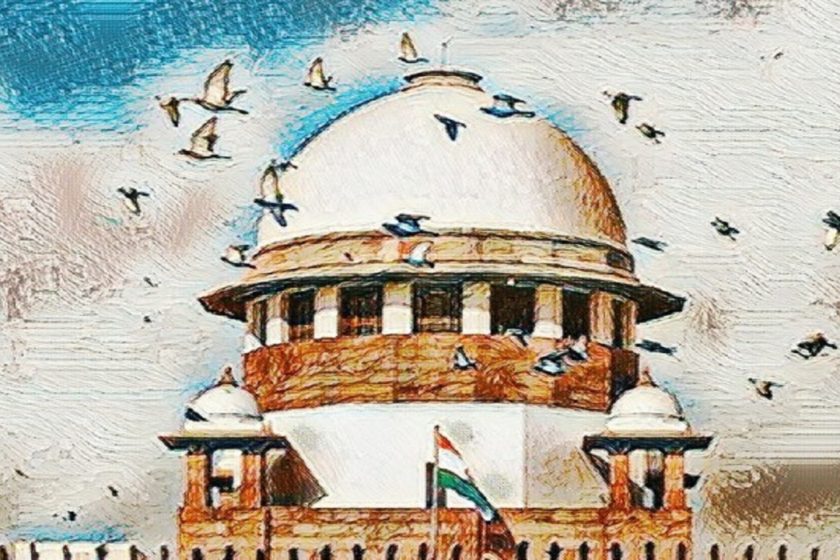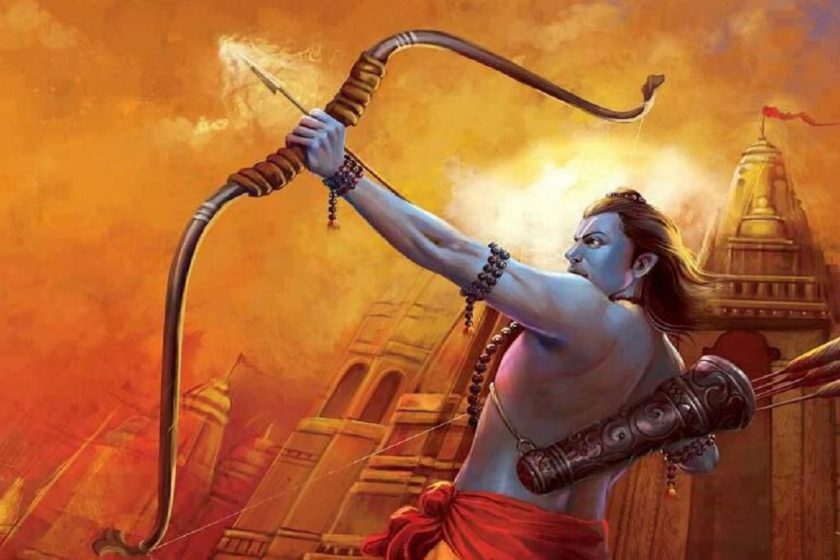Places of Worship Act, an Unconstitutional Act
Article by Radhey Syam Rai
Any cursory glance of Indian constitution will reveal its reliance on English law and that the core remains the Government of India Act 1935 passed by the British colonial government. The judiciary in India has also been a byproduct of British colonial government, and many a times it reveals the British antecedents. An enactment is presumed to be intravires and the onus of proof lies on the person who challenges its vires. And whenever there is any doubt regarding the constitutionality of an enactment, the doubt should always go in favour of the legislature.
In short even if the Parliament passes an highly arbitrary law which keeps itself aloof from the concept of justice, the onus will be on the person challenging its provisions to prove its wrong. In normal cases, such an act would be declared ultra vires by the Indian judiciary which has established itself as a vanguard of the Fundamental Rights. But when the Act is another tool of oppression on Hindu religion and civilisation, it requires to be seen if the judges will have the courage and conviction to declare it ultravires.
The spotlight here is on the Places of Worship Special Provisions Act, a two page legislation passed by Narasimha Rao government at the height of Ramjanmabhumi agitation. From the wordings of the Act, the idea was perhaps to nip from bud every agitation to #ReclaimTemples on the lines of the Ramjanmabhumi movement.
We look at some reasons on how this Act is ultravires of Indian constitution and why the courts will have to strike it down if they act without fear or favour.
Places of Worship Special Provisions Act is a ‘colourable piece of legislation’ as defined by the Honorable Supreme Court of India in the case of KC Gajapati Narayan Deo V State of Orissa 1954 SCR 1 wherein the Supreme Court has stated that where a legislature has limited powers because the Constitution lays down a limit on it by providing fundamental rights to the citizens, questions do arise as to whether the legislature in a particular case has or has not, in respect to the subject matter of the statute or in the method of enacting it, transgressed the limits of its constitutional powers. Such transgression may be patent, manifest or direct, but it may also be disguised, covert and indirect and it is to this latter class of cases that the expression ‘colorable legislation’ has been applied in certain judicial pronouncements.
Hindus were driven out from Kashmir by the time this Act was passed and enforced. Kashmiri Hindus left behind them many temples and other Hindu Religious Institutions. This Act washes its hands off when it comes to protection of Hindu Religious Places and Institution. Art 14 and 21 is infringed as far as this provision unreasonably discriminates against Hindus. Mala fide on the on the part of the ruling party which paddled the enactment in the Parliament is clearly apparent here. If the Advocates Act, 1961 and other enactment could be made enforceable pan India, this could have also been enforced in the similar manner.
Also the legislature knew that many temples belonging to Hindus had been desecrated, sacked and converted to Mosques by Islamic invaders at various points of time in the past. The Hindus were not able to claim back the temples which now lay in Pakistan and Bangladesh as the writ of our courts don’t run in those countries but there is definite clamor to reclaim the ones lying within the territory of the Indian Union. The blanket prohibition preventing Hindus from claiming their temples back by instituting a suit to the court and the provision to abate the ones already pending in a court is unjust and ultravires Art 32 of the Constitution as the right to manage religious affairs under Art 26 includes the right to reclaim the temples forcibly converted into mosques. The adjudication of a list is the province of law courts and a prohibition to institute suits and foreclosing the ongoing ones amount to encroachment in the realm of judiciary by the legislature, hence, ultravires on this count too.
It will only be a matter of time that this Act will be challenged in a court of law and declared ultra vires by the learned judges.
The Act is as below, please do have a read.
THE PLACES OF WORSHIP (SPECIAL PROVISIONS) ACT, 1991
ACT NO. 42 OF 1991 [18th September, 1991.]
An Act to prohibit conversion of any place of worship and to provide for the maintenance of the religious character of any place of worship as it existed on the 15th day of August, 1947, and for matters connected therewith or incidental thereto.
BE it enacted by Parliament in the Forty-second Year of the Republic of India as follows:—
S 1(2) It extends to the whole of India except the State of Jammu and Kashmir.
S 1 (3) The provisions of sections 3, 6 and 8 (S 8 Rep. by the Repealing and Amending Act, 2001 (30 of 2001), s. 2 and the First Schedule (w.e.f. 3-9-2001) shall come into force at once and the remaining provisions of this Act shall be deemed to have come into force on the 11th day of July, 1991.
S 2. Definitions.—In this Act, unless the context otherwise requires, — (a) “commencement of this Act” means the commencement of this Act on the 11th day of July, 1991; (b) “conversion”, with its grammatical variations, includes alteration or change of whatever nature; (c) “place of worship” means a temple, mosque, gurudwara, church, monastery or any other place of public religious worship of any religious denomination or any section thereof, by whatever name called.
S 3. Bar of conversion of places of worship.—No person shall convert any place of worship of any religious denomination or any section thereof into a place of worship of a different section of the same religious denomination or of a different religious denomination or any section thereof.
S 4. Declaration as to the religious character of certain places of worship and bar of jurisdiction of courts, etc.—(1) It is hereby declared that the religious character of a place of worship existing on the 15th day of August, 1947 shall continue to be the same as it existed on that day. (2) If, on the commencement of this Act, any suit, appeal or other proceeding with respect to the conversion of the religious character of any place of worship, existing on the 15th day of August, 1947, is pending before any court, tribunal or other authority, the same shall abate, and no suit, appeal or other proceeding with respect to any such matter shall lie on or after such commencement in any court, tribunal or other authority: Provided that if any suit, appeal or other proceeding, instituted or filed on the ground that conversion has taken place in the religious character of any such place after the 15th day of August, 1947, is pending on the commencement of this Act, such suit, appeal or other proceeding shall be disposed of in accordance with the provisions of sub-section (1). (3) Nothing contained in sub-section (1) and sub-section (2) shall apply to,— (a) any place of worship referred to in the said sub-sections which is an ancient and historical monument or an archaeological site or remains covered by the Ancient Monuments and Archaeological Sites and Remains Act, 1958 (24 of 1958) or any other law for the time being in force; (b) any suit, appeal or other proceeding, with respect to any matter referred to in sub-section (2), finally decided, settled or disposed of by a court, tribunal or other authority before the commencement of this Act; (c) any dispute with respect to any such matter settled by the parties amongst themselves before such commencement; (d) any conversion of any such place effected before such commencement by acquiescence; (e) any conversion of any such place effected before such commencement which is not liable to be challenged in any court, tribunal or other authority being barred by limitation under any law for the time being in force.
S 5. Act not to apply to Ram Janma Bhumi-Babri Masjid.—Nothing contained in this Act shall apply to the place or place of worship commonly known as Ram Janma Bhumi-Babri Masjid situated in Ayodhya in the State of Uttar Pradesh and to any suit, appeal or other proceeding relating to the said place or place of worship.
S 6. Punishment for contravention of section 3.—(1) Whoever contravenes the provisions of section 3 shall be punishable with imprisonment for a term which may extend to three years and shall also be liable to fine. (2) Whoever attempts to commit any offence punishable under sub-section (1) or to cause such offence to be committed and in such attempt does any act towards the commission of the offence shall be punishable with the punishment provided for the offence. (3) Whoever abets, or is a party to a criminal conspiracy to commit, an offence punishable under sub-section (1) shall, whether such offence be or be not committed in consequence of such abetment or in pursuance of such criminal conspiracy, and notwithstanding anything contained in section 116 of the Indian Penal Code (45 0f 1860), be punishable with the punishment provided for the offence.
S 7. Act to override other enactments.—The provisions of this Act shall have effect notwithstanding anything inconsistent therewith contained in any other law for the time being in force or any instrument having effect by virtue of any law other than this Act. 8. [Amendment of Act 43 of 1951.]—Rep. by the Repealing and Amending Act, 2001 (30 of 2001), s. 2 and the First Schedule (w.e.f. 3-9-2001).
#ReclaimTemples


